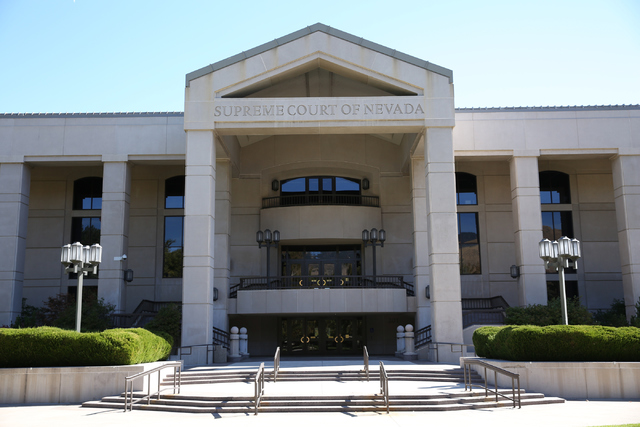Overlooked provision in Nevada ESA ruling opens door for conservative lawsuits
The Nevada Supreme Court’s decision to suspend the state’s Education Savings Accounts wasn’t a complete loss for conservatives. Far from it, in fact.
An overlooked section in last year’s ruling makes it easier for Nevada taxpayers to sue the government over actions and expenditures of questionable constitutionality. It gives taxpayers a powerful new tool to fight government expansion and overreach.
One of the biggest hurdles taxpayers face in challenging an unconstitutional law or action is finding a plaintiff with standing — someone who has incurred or will incur direct harm as a result of the government action.
Most states have recognized taxpayer standing. But Nevada law is silent on the issue.
In its ESA ruling, the court acknowledged the standing issue and for the first time recognized a “public-importance exception” to standing. It said courts may grant standing to a Nevada citizen to bring a constitutional challenge if the case involves an issue of significant public importance, if the case is based on “a specific provision of the Nevada Constitution” and if no one is in a better position to sue than the plaintiff.
While the court explicitly avoided offering its opinion on taxpayer standing, the public-importance exception paves the way for conservative legal challenges of unconstitutional laws.
Nevada is a target-rich environment for such lawsuits.
Up first should be a lawsuit challenging the scheme I told you about earlier this month. The Legislature has violated the voter-approved Gibbons’ Tax Restraint Amendment, which requires two-thirds approval in both chambers for a bill “which creates, generates, or increases any public revenue in any form.” Currently, the Legislature’s lawyers say a tax increase bill needs only a simple majority if lawmakers punt to a local government for approval. That doesn’t pass the smell test, but the practice has yet to be challenged in court. The lack of taxpayer standing was a previously insurmountable roadblock.
The perfect test case: a challenge to SB119 and SB207 from the 2015 session. Both bills authorized school districts around the state to issue billions of dollars in bonds by extending a property tax. Each bill received a simple majority, not two-thirds support, in the Assembly.
A well-structured legal challenge could stop this constitutional end-around while saving taxpayers billions of dollars by altering or halting the Clark County School District’s ability to secure loans. Since 2015, the school district has issued $300 million worth of bonds authorized by SB119/SB207, and it plans to issue $3.5 billion in bonds in total. David Jacobson of Moody’s Investors Service wrote in an email, “Any legal challenges to the district’s ability to meet its financial and operational requirements would be a credit consideration.”
The Supreme Court ruling also breathes new life into a lawsuit brought by my former colleagues at the Nevada Policy Research Institute challenging unconstitutional subsidies given to SolarCity through the Governor’s Office of Economic Development. That’s a good thing.
Unfortunately, the ruling probably won’t help someone who wants to uphold the separation of powers clause by challenging a lawmaker’s ability to serve in the legislative branch while also holding a job in the executive or judicial branch. The court previously has said a plaintiff can gain standing only if they are qualified for the legislator’s executive/judicial branch job.
This is great news for taxpayers. All we need are a few good lawyers.
Victor Joecks’ column appears in the Nevada section each Monday, Wednesday and Friday. Contact him at vjoecks@reviewjournal.com. Follow @victorjoecks on Twitter.























